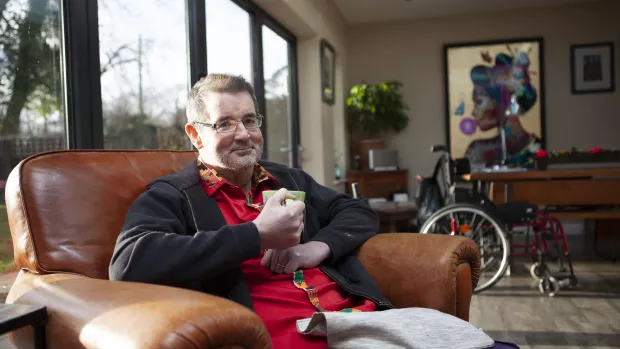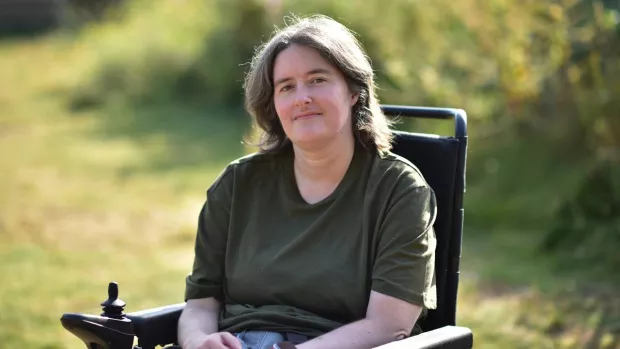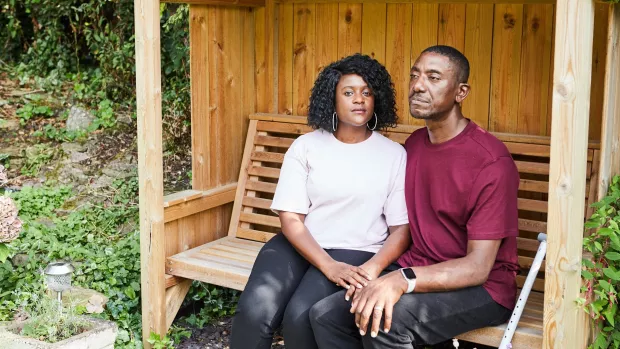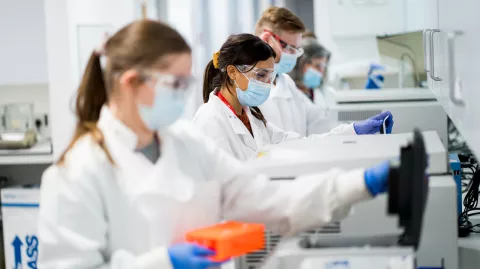
Connections matter: from fungal infections to MS research
Dr Selinda Orr is an immunologist who specialises in fungal infections. She told us how sharing her work with colleagues in MS research has led to an exciting project.
In science, some of the biggest breakthroughs come when we bring knowledge from one field of research to a completely different area. The project I’m starting is a crossover of fungal immunology and MS research. I think it opens many exciting possibilities.
Connecting from the lab through to the clinic
My lab team at Queen’s University, Belfast, study how the immune system responds to the fungal microbes which cause life-threatening infections. It’s always been important to me that my research connects with a condition and has the potential to benefit people.
I previously trialled a system which could identify whether patients on a hospital ward were at risk of developing a bloodstream fungal infection. I hope to bring this system into hospitals and change the treatment process for patients at risk.
New connections for new ideas
During shared lab meetings with MS researcher colleagues, I noticed possible connections between my research and theirs.
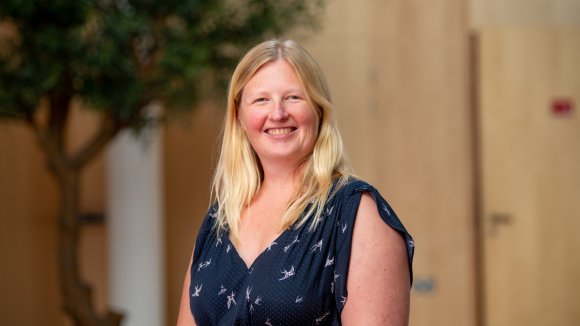
After a conversation with one of my colleagues about these potential connections, I did a little further research. I think the proteins I work on in fungal infections potentially play a role in myelin repair.
We need special immune cells called microglia and macrophages to repair myelin. They do this by helping tidy up damaged bits of myelin. The proteins I work with sit on these immune cells. And they're more common in animals with an MS-like condition and in samples from people with MS. I want to investigate more with my project funded by the MS Society.
Back to basics
While I’m new to MS research, I’ll approach it in the same manner, with a focus on basic and clinical research.
I’ll use cells in a dish and tissue from mice to look at whether these proteins are involved in myelin repair. If they are, I’ll aim to create a program combining basic and clinical research. I want to ensure the impact of the research reaches people with MS as soon as possible.
As a scientist I am passionate about lab research. We need to understand how the immune system, nervous system or other bodily processes work and interact with each other. Then we might be able to find ways to help when they stop working or are altered in some way. If we don’t understand how something works, it makes it a lot more difficult to fix.
What I hope to achieve
I'd love it if one of the proteins that I’m examining could be used to develop new treatments to promote myelin repair in MS.
I’m excited to bring my expertise from this area into the field of MS research, with the aim of finding something completely new. I believe that by bringing knowledge from a completely different field of research we can gain a much wider and better understanding of the process of myelin repair in MS.
Will you help us make the connections to stop MS?
We’re making real progress in all areas of myelin repair research. Will you donate today to help us continue to build the connections between MS, its causes, and how we can stop it?

